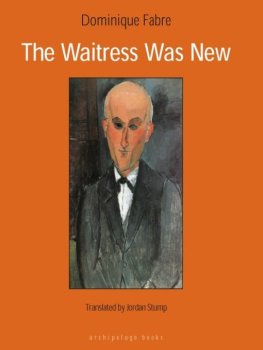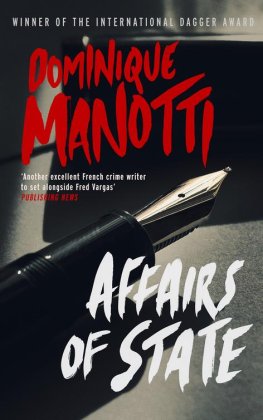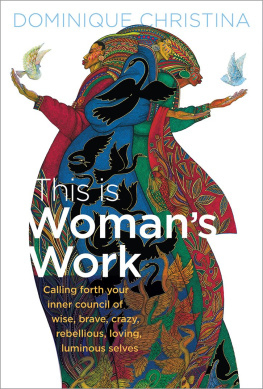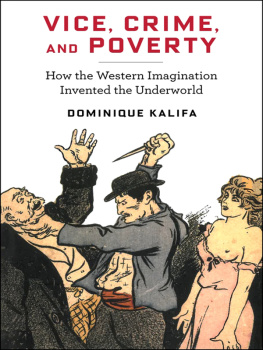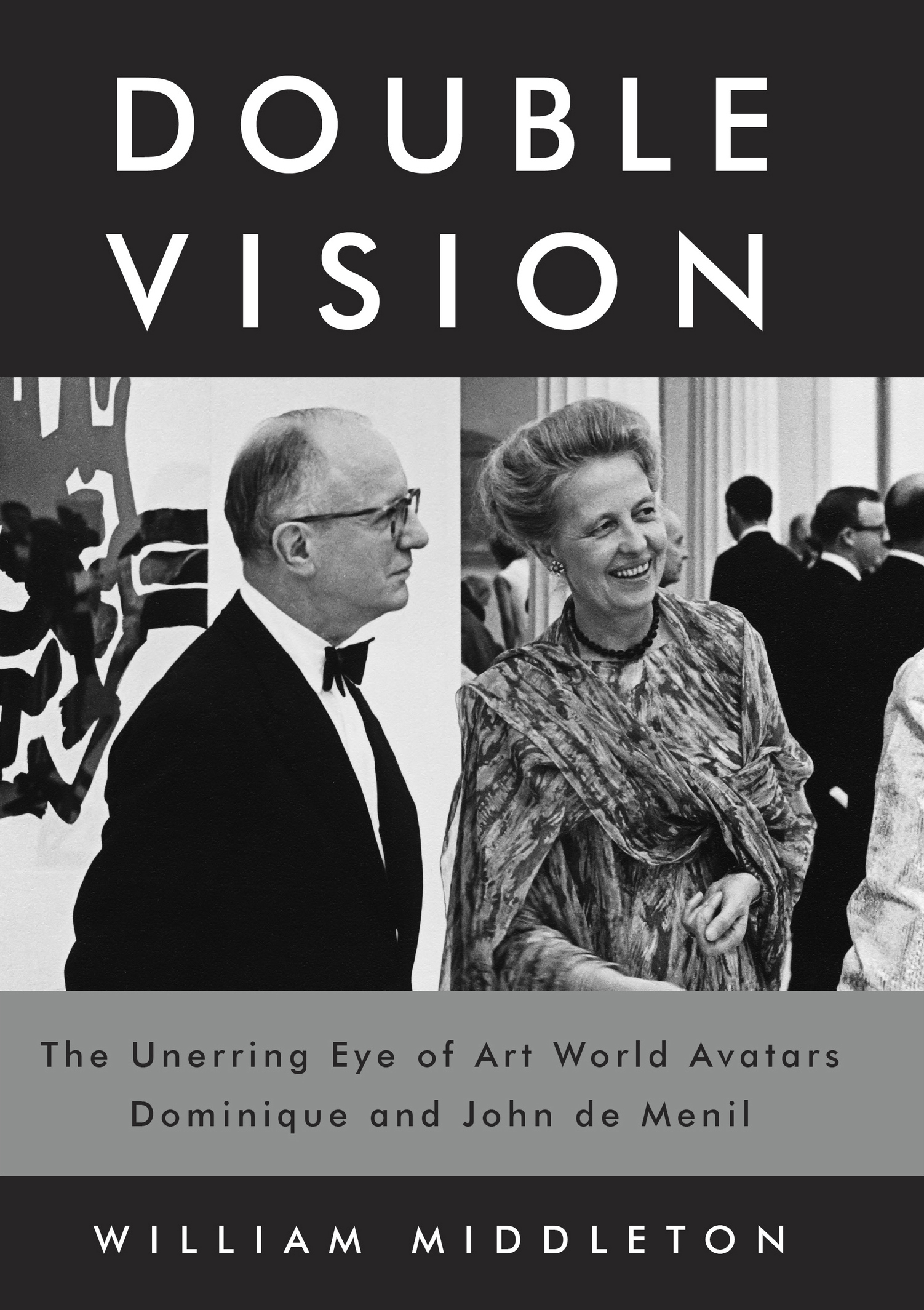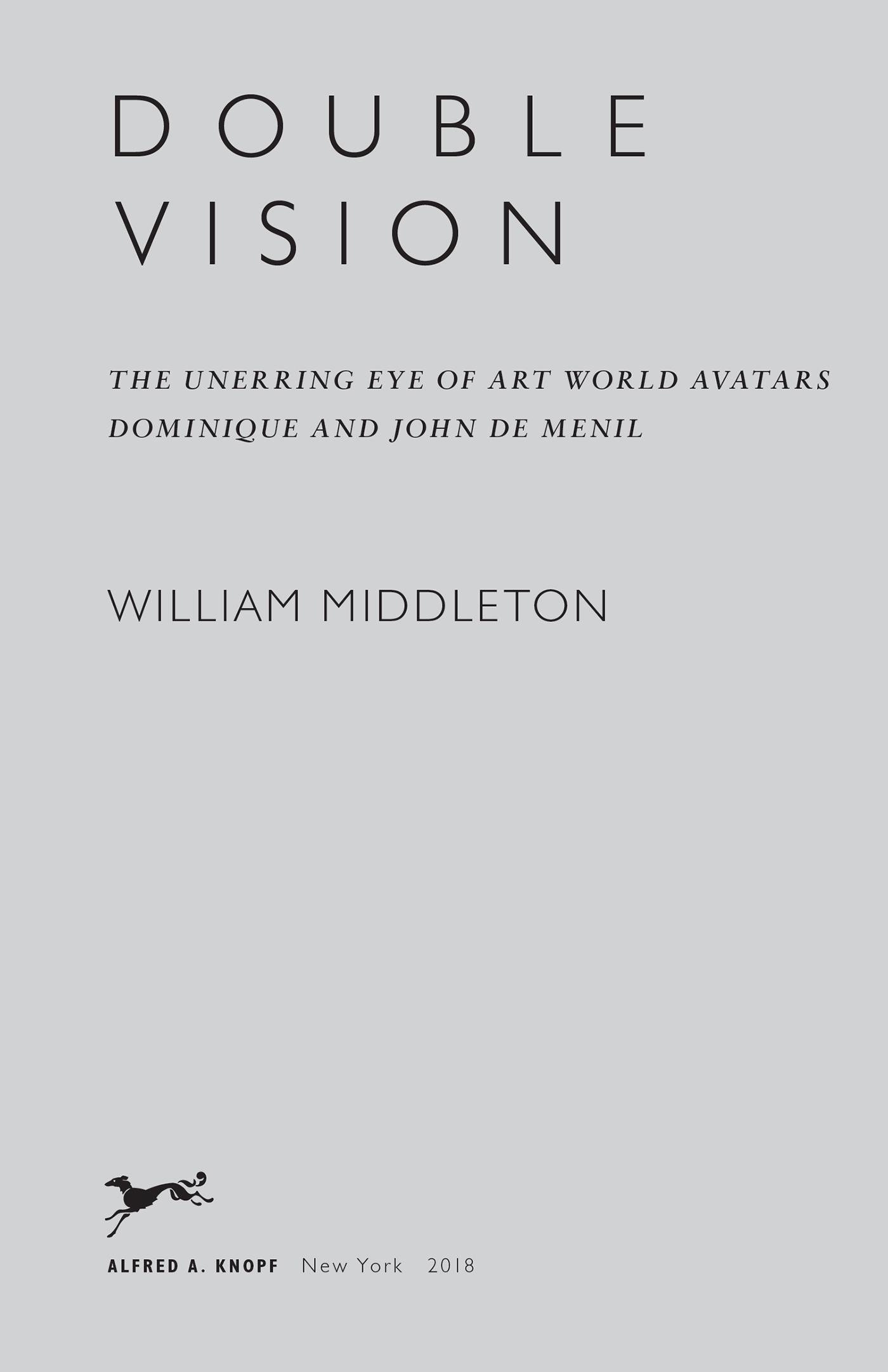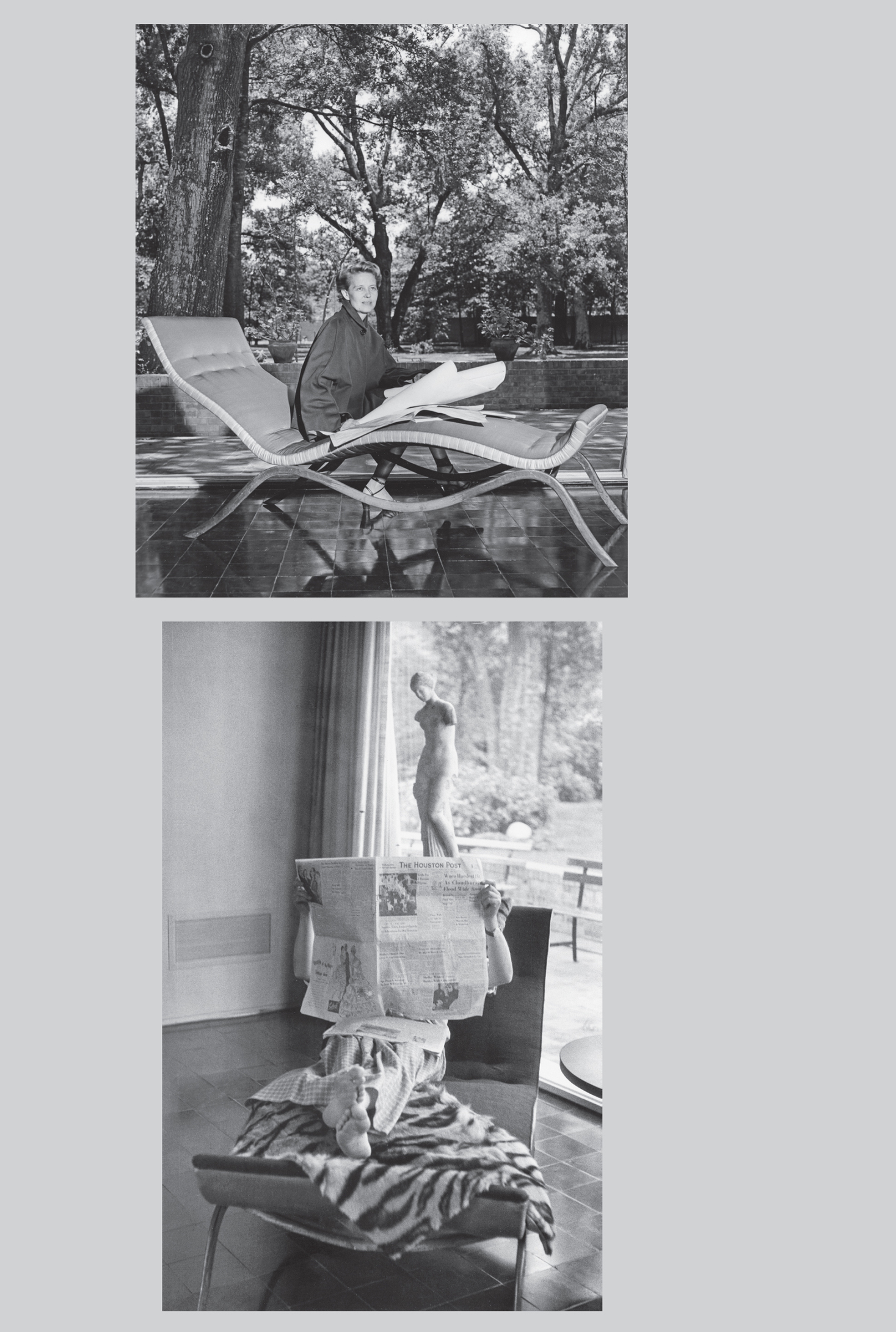PUBLISHED BY ALFRED A. KNOPF
All rights reserved. Published in the United States by Alfred A. Knopf, a division of Penguin Random House LLC, New York, and distributed in Canada by Random House of Canada, a division of Penguin Random House Canada Limited, Toronto.
Knopf, Borzoi Books, and the colophon are registered trademarks of Penguin Random House LLC.
Title: Double vision : the unerring eye of art world avatars Dominique and John de Menil / by William Middleton.
Description: New York : Alfred A. Knopf, 2018. | Includes bibliographical references and index.
Identifiers: LCCN 2017027976 | ISBN 9780375415432 (hardcover) | ISBN 9781524732943 (ebook)
Subjects: LCSH: Menil, John de. | Menil, Dominique de. | ArtCollectors and collectingUnited StatesBiography.
Classification: LCC N5220.M555 M53 2018 | DDC 707.5dc23 LC record available at https://lccn.loc.gov/2017027976
Cover photograph by Budd, courtesy of the Menil Archives, The Menil Collection, Houston.
I feel like I am with friends, trading fond recollections, and, as one often does, I am telling you how we got drunk. Because thats what it is. Art is intoxicating. It is not a rarefied nicetyits hard liquor.
And then there is a remorse of some sort. How can one drink and enjoy it when there is the war in Vietnam, when people are hungry in the world, when there is the ugly reaction to the moderate move of the school board? When there are people around us, police and others, who treat the blacks as I wouldnt treat a stray dog? And this at a time when the blacks have revealed their greatness by producing some of the best writers and poets in the country.
Well, man does not live by bread alone and there is redeeming value in art. Look at great artists. They can be difficult, dissolute, but they are never base and in their quest for perfection they come closer to eternal truths than pious goody-goodies.
So we are collectors without remorse.
I regret very much that the word controversial is so disparaging. To be controversial means to have original ideas that not everybody has. Whats accepted is never what is the most important or the most interesting. To be not controversial is to remain at the lowest common denominator.
ACKNOWLEDGMENTS
This book is enormously indebted to many people and institutions. First and foremost, I want to thank the five children of Dominique and John de Menil and their husbands and wivesChristophe, Adelaide and Edmund Carpenter, Lois and Georges, Susan and Franois, and Fariha Friedrichfor the many interviews, family photographs, and access to the de Menil Family Archives.
Other family members who generously gave me their time include Odile de Rouville, Anne Schlumberger, So Schlumberger, Henriette de Vitry, Pauline Lartigue, Claire Delpech, Bndicte Pesle, Michal Grunelius, Jean-Marie Grunelius, and two de Menil grandchildren, Jason de Menil and Aziz Friedrich. Several former sons-in-law were very helpful: Robert Thurman, Francesco Pellizzi, and Heiner Friedrich. And I must also thank the following artists for so generously speaking to me: Jasper Johns, Philip Glass, Robert Wilson, David Novros, and Marc Riboud, as well as the many art world colleagues of the de Menils including Walter Hopps, Leo Steinberg, Werner Spies, Alfred Pacquement, Jean-Yves Mock, Remo Guidieri, Richard Koshalek, Carol Mancusi-Ungaro, Helen Winkler, Paul Winkler, Bertrand Davezac, Fredericka Hunter, Elisabeth Glassman, Neil Printz, David Anfam, Ashton Hawkins, Paula Cooper, Peter Marzio, Gary Tinterow, Alison de Lima Greene, John Richardson, Sarah Whitfield, Christopher Rothko, and Kate Rothko Prizel.
Other friends or colleagues of the de Menils to whom I owe a debt include President Jimmy Carter, Renzo Piano, Claude Pompidou, Jack Lang, Merete Angelica Baird and Euan Baird, Earl Allen, Gail and Louis Adler, Surpik Angelini, Eugene Aubry, Bud Aubry, Marguerite Barnes, Susan Barnes, Dominique Browning, Ladislas Bugner, Ginny and Bill Camfield, Sarah Cannon, Arvin Conrad, Sylvia de Cuevas, Bessie de Cuevas, Kathy Davidson, Nabila Drooby, Anne Duncan, Christian Dupavillon, Don Easum, Ralph Ellis, Sissy Farenthold, Anthony Fredericks, Nora Fuentes, Laura Furman, Roland Gnin, Danielle Giraudy, Miles Glaser, Andr Gouzes, James Harithas, Glenn Heim, Fred Heinz, Jackson Hicks, Ann Holmes, Yves-Andr Istel, William Jordan, Mimi Kilgore, Karl Kilian, William Lawson, Homer Layne, Jim Love, Edward Mayo, Robin McCorquodale, Wil McCorquodale, Shelby Miller, Gerald OGrady, George Oser, Chris Powell, Jean Rougier, Gladys Simmons, Eve Sonneman, Eduardo Souchon, Richard Stout, Simone Swan, Cynthia Taylor, Wendy Watriss and Fred Baldwin, Stephen Whittaker, Walter Widrig, and Geoff Winningham.
I am particularly grateful to have been able to interview two people who worked closely with the de Menils: Solange Picq, who was John de Menils Paris assistant at Schlumberger Limited in the 1950s and then worked with Dominique in Paris for the rest of her life, and Elsian Cozens, the Houston assistant for John who, after his death, was the lifelong assistant of Dominique.
I also cannot stress enough how indebted I am to those who enabled me to keep working on the book over the years: The Houston Artists Fund allowed contributions from foundations and individuals in Houston and New York. A key element of the fund-raising was the formation of a group of supporters led by Lynn Wyatt, Sara Paschall Dodd, Ann and Mathew Wolf, and Marion and Ben Wilcox, each of whom also became major donors, taking a great leap of faith with this project and empowering us to approach others. Their combined efforts led to a trio of lead funders for the de Menil biography: the Brown Foundation, Inc., Houston Endowment, and Louisa Stude Sarofim. It is no exaggeration to say that the book would not exist without the hugely generous support of these three entities.
Other major patrons included the Anchorage Foundation of Texas, the Margaret and James A. Elkins Jr. Foundation, Amber Capital, Nina and Michael Zilkha, Leslie and Brad Bucher, the Asen Foundation, Charles Butt, Franci and Jim Crane, Wendy and Mavis Kelsey, Jeanne and Mickey Klein, Alexandra and Brady Knight, Becca and John Thrash, and Mark Wawro. Leading patrons who also granted interviews were Suzanne Deal Booth, Susan OConnor, Jane Blaffer Owen, Mary and Roy Cullen, Sissy and Denny Kempner, Marilyn Oshman, and Herbert Wells. There were dozens of individual donors including Carol Ballard, the Charles Englehard Foundation, Toni and Jeffery Beauchamp, Susie and Sanford Criner, Les Engelhard, Glen Gonzalez and Steve Summers, Meg Goodman, Cornelia and Meredith Long, Mr. and Mrs. S. I. Morris, Dr. Maconda B. OConnor, Anita and Mike Stude, Bettie Cartwright, Leslie Elkins, Ed Filipowski and Mark Lee, Ann and Tom Kelsey, Muffy and Mike McLanahan, Fan and Peter Morris, William Stern, Stuart West Stedman, and Wallace Wilson.


